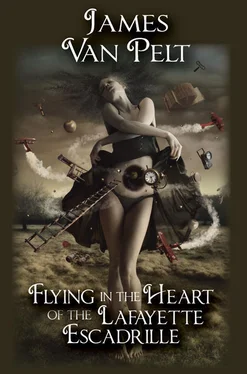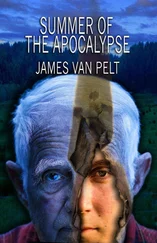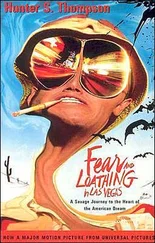Sand slithered away beneath his feet, and it took dozens of steps to climb the few feet to the top. A wall of dwarf pine filled the gully in front of him. To both sides bare hills rose like shoulders from the sea. The wolf popped out of a narrow gap in the pine, paused until Roman moved toward it, then vanished into the vegetation. Roman got on his knees and looked through the dark arch. He’d have to crawl. He left his backpack on the ground.
It seemed a long way. The strongest sense of deja vu swept over him as he pushed through the pine. He’d been here before, following a playful wolf. The behavior seemed familiar, but he didn’t come up with the connection until the pine opened up, and he could finally stand. There, sitting on their haunches, watching him intently, was the rest of the pack. He saw Fitzgerald in all their eyes, a little bit of Fitzgerald in the tilt of their heads. Fitzgerald resided in the passion of their stares.
Then he figured it out. Not wolves. Wolves wouldn’t ambush, but coyotes would. Clever tricksters, the wolves surrounded him, and the first drops of rain spattered down.
The rain fell. Roman turned a full circle, water running across his cheeks, dripping off his nose. As he faced each wolf, it tucked its head down, dropped its ears back and lowered its tail. It was deference. When he stepped toward the big gray, it too turned slightly away, exposing its neck, showing by posture a lower rank.
The wind sliced through Roman’s wet clothes. He shook against the chill, but he stood in the middle of them until the sky darkened enough to tell him that night was near. Straight across the island, the research center was no more than a couple of miles away.
What message should he take from this? What did it mean that the wolves made him the alpha-male? Was that the lesson that Fitzgerald sent to them through the hours of broadcasting, or was it what they picked up from him directly on those nights he mingled with them? It seemed a kind of forgiveness, a kind of benediction of clemency. Roman had turned away from Fitzgerald, but all was not lost. The wolves forgave him. Roman fell to his knees in relief, and he let the rain melt the letter until the words were unreadable.
Finally, expended and bone cold, he stepped past the first wolf and headed for the shelter of the research center. The wolves that had been lying down stood, and the big gray trotted to a spot in between Roman and his goal.
Roman stopped. The wolf growled deep from the back of its throat; his teeth gleamed.
“I’ve got to go, boys,” said Roman, but the wolf blocked his path, snarling when Roman tried to walk away. Only when he moved back to the center of the pack did the gray lose interest. Roman tried twice more to slip past them, but the reaction was the same. The pack would tear him up if he tried to leave. Night gradually fell; rain continued, and the wind never stopped.
Later, much later, Roman lost track of what direction he should go if he could go. He couldn’t feel his hands anymore, and the little voice in the back of his head that stayed with him when he was drunk told him that hypothermia was setting in, but he didn’t care. Caring took too much energy, and he wasn’t afraid either. He was just tired. Below him, the sand felt soft, so he laid himself on it. He’d quit shivering long ago.
Soon a warm, wet weight pressed itself against him. Another one warmed his other side. He opened his eyes slowly, took a long time to focus, and saw on the crest of the hill looking down, a marble white figure like a naked god in the moon light. Raising his head lethargically, Roman mouthed the name, but as he studied the shape he realized it was the crescent moon. The clouds had broken, although rain still fell, and the wind hustled over him, moaning in his ear. Sand pressed gently against his cheek; he closed his eyes again, understanding the wolves were keeping him warm, and before he slipped into unconsciousness, he knew they loved him. Fitzgerald and the pack loved him. They would stay with him until it was time to jump in the ocean and start that long swim.
And they would never, never let him go.
Iused to be able to kill flies.”
“What?”
“Flies, I used to be able to kill them.”
“You brought me to the girl’s bathroom to tell me you used to be able to kill flies, Maureen? I can kill flies.”
The two girls huddled together in a stall. Stagnant cigarette smoke whisped around them like a mist. Maureen sat on the stool, her hands pressed deeply into the blue and gray plaid skirt that was uniform at Mrs. Fennimore’s Finishing School. Leslie, facing her, arms crossed over her crisply starched blouse, leaned against the door.
“Anybody can kill flies.”
“I can still kill them, just not as well.” Maureen, head down, seemed intent on the floor between them.
“I’m ditching Home Ec for you. There had better be more to that than this.”
“You are the only one I can tell. I don’t have any other friends here. No one would understand.” Maureen turned her face up. Her eyes were rimmed red. “Please listen to me.”
Leslie stooped and put her hand on Maureen’s hands.
“I’m sorry. Just be clearer. That’s all. Now what do you mean about not being able to kill flies as well?”
“It won’t do any good to tell you. I’ll have to show you,” she said and stood up. “Find a fly.”
“We’re in the head. No problem.” They pushed through the door together. “There’s one.”
Around the ceiling light flew a large fly, a September fly, fat from a summer of waste food, spilled soft drinks, and whatever other unmentionable things flies feed on.
Maureen pointed at it, sighting down her arm like a pheasant hunter and said “Bang.” It caught fire, fell to the floor, smoldered for a second, and then was just a tiny pile of ash.
Leslie sidled over to it cautiously and stared down for a moment.
“Shit.” She looked at Maureen. “Can you do that every time?” She looked down. “Shit.”
“No, I can’t.” Maureen’s face was a portrait of grief. “Sometimes they don’t even die. They used to go up like firecrackers. When I was eight, there wasn’t a fly within a mile of our house. I went out back, said ‘bang’ and it would sound like the Fourth of July. I didn’t need to see them; I didn’t even have to know they were there, but now—this.” She pointed at the ash.
“You killed that fly. Do you know how incredible that is? You’re a phenomenon. People will want to study you. We can make lots of money. We’ll be more famous than rock stars.” Leslie whirled gleefully.
“No! Why do you think you’re the first to know? Sit down for a second and figure this out. Do you think I want to be a freak? No way! It’s a secret. Only you and I can know.” They moved to the window seat. The bottom panes were frosted to prevent people from looking into the second story bathroom, but the upper panes provided a good view of the commons area. “Besides, at this rate in a few months I won’t be able to do it at all.”
“So what’s the problem? Most people I know can’t kill flies that way and they’re happy. Black Flag works fine for them.”
“Very funny.”
“I wasn’t trying to be funny. You have a strange skill and it’s going away. People live all over who can’t point their fingers at things and make them die. I don’t see the big fuss.”
“The fuss is that I used to be able to do it. It made me different. Some girls can sing. You can play the piano; some are good at English or Math; some are great dancers. This is what made me unique. It gave me power that no one else had.” She put her head down again. “And now it’s going away. I’ll just be a stupid twelve-year-old at this stupid finishing school.”
Читать дальше










